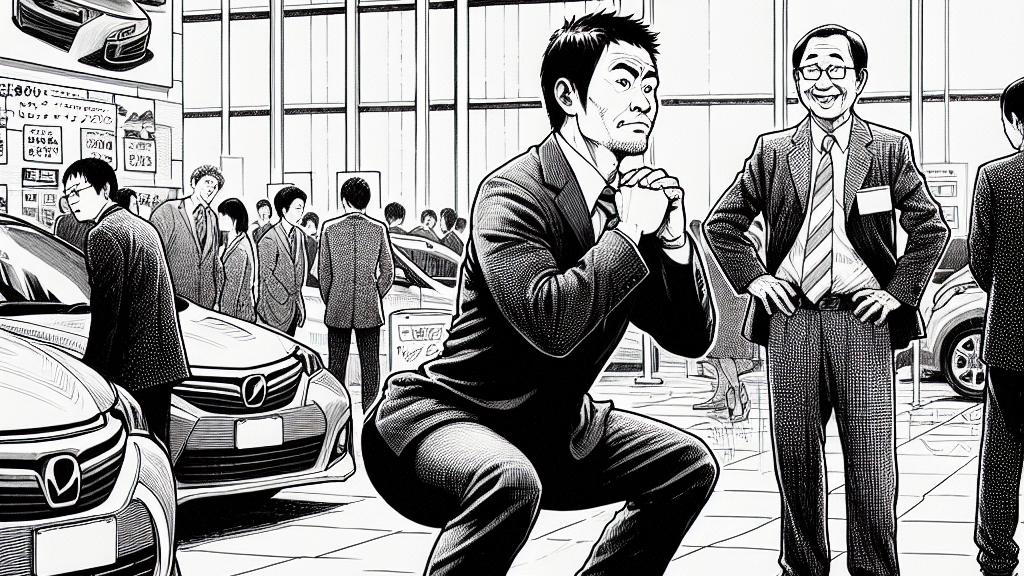Squat Your Way Out of Awkward Sales Tactics!
Overview
- A manager's hilarious response to an overzealous salesperson.
- How physical actions can disrupt uncomfortable social interactions.
- Exploring the psychology behind mirroring and social cues.

The Uncomfortable Encounter
In a lively car dealership in Japan, a manager embarked on what seemed like an ordinary task—buying a new car. However, the ordeal quickly took a twist as the salesperson adopted overly aggressive sales tactics, prominently using the technique of mirroring. This technique involves mimicking the buyer's gestures and speech to foster a sense of familiarity and rapport. As the salesperson’s actions became increasingly apparent and irritating, the manager, feeling a mix of discomfort and amusement, decided to break the tension in an unusual way—by doing squats right there in the showroom. This spontaneous and humorous action not only caught the salesperson off guard but also turned the uncomfortable encounter into a laughable moment, illustrating the power of comedic relief in social situations.
Understanding Social Dynamics
This amusing scenario serves as a brilliant case study in social awareness, a skill that involves recognizing and interpreting the social cues that dictate interactions. The concept of mirroring is often utilized in sales to enhance connection, yet when the technique becomes too blatant, it can provoke irritation rather than rapport. By being acutely aware of the dynamic at play, the manager was able to reclaim control by employing humor and physicality, effectively confusing the salesperson's tactics. This incident emphasizes the importance of social awareness in navigating tricky interactions, as it allows individuals to respond rather than react, transforming potentially negative situations into moments of personal empowerment and light-heartedness.
The Power of Physical Action
The act of engaging in playful physical actions, like performing squats, showcases a remarkable strategy for managing awkwardness in social interactions. Such spontaneous responses can defy traditional norms and expectations, allowing individuals to alleviate discomfort while simultaneously diffusing tense situations with humor. In this instance, the manager's unexpected choice not only disrupted the sales pitch but also shifted the interaction into a realm of levity, reminding us of the profound impact physical actions can have on our emotional state. This narrative encourages a broader discussion about how integrating playful movements in moments of social tension can lead not only to emotional regulation but also to fostering more authentic connections, illustrating that sometimes, laughter (and squats) can be the best response to pressure.

Loading...